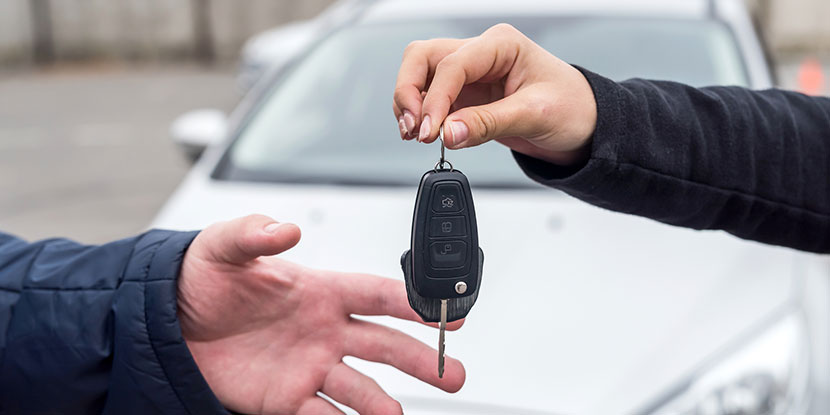Buying a Used Car Without a Logbook

When purchasing a car, there are many important things to consider. One of the most important is making sure you have all the necessary paperwork in order. If you’re buying a car without a logbook, there are a few extra steps you’ll need to take to make sure the process goes as smoothly as possible. In this blog post, we will outline everything you need to know about buying a car without a logbook!
What Is A Logbook?
A logbook or V5C registration document is a document that proves you are the registered keeper or owner of a vehicle in the United Kingdom. If you do not have a logbook, you will need to apply for one from the DVLA. The logbook contains important information about your vehicles, such as the make, model, and registration number.
Every car owner must have a logbook, and it must be kept up to date. If you move house or change your name, you will need to update your logbook accordingly. Without a logbook, it can be more difficult to sell your car or transfer ownership because there is no physical proof that you are the owner of the vehicle.
Why Would I Buy A Car Without A Logbook?
Even though it can be risky, there are many reasons why someone might choose to buy a car without a logbook. The most common reasons are:
#1. The car is much cheaper without a logbook.
If the seller does not have the logbook, they may be selling the car for a lower price. This can be a great opportunity to get a good deal on a vehicle! However, you need to be careful when purchasing a car without a logbook. Make sure to do your research and inspect the car thoroughly before making a decision.
#2. The car is not registered in the UK.
If the car you’re interested in is not registered in the UK, you will need to apply for a logbook from the DVLA. This can be a lengthy and complicated process, so it’s important to make sure you are prepared before purchasing a car without a logbook.
#3. The car has been stolen.
If the car you’re interested in has been stolen, the previous owner may not have the logbook. In this case, it is best to avoid purchasing the car altogether.
While there are some risks associated with buying a car without a logbook, there are also some potential benefits. If you’re considering purchasing a car without a logbook, make sure to do your research and be prepared for the process. With the right information, you can be sure to make the best decision for your needs!
What Will Happen If I Buy A Car Without A Logbook?
If you choose to purchase a car without a logbook, there are a few things you need to be aware of. The first is that you will need to apply for a logbook from the DVLA. This can be a lengthy and complicated process, so it’s important to make sure you are prepared before purchasing a car without a logbook.
The second is that you may not be able to register the car in your name. If the car is not registered in the UK, you will need to apply for a logbook from the DVLA. Since the process can be complicated, it’s best to consult with a professional before purchasing a car without a logbook. You also must bear the cost of registering the car in your name if you choose to do so.
Another thing to keep in mind is that you will be responsible for maintaining the car. This includes things like getting the car serviced, repairing any damage, and paying for any necessary repairs. Without a logbook, it can be more difficult to check the history of your used cars, such as accident history or previous owners.
Finally, you need to be aware of the risks associated with buying a car without a logbook. The most common risk is that the car may have been stolen. If the car you’re interested in has been stolen, the previous owner may not have the logbook. In this case, it is best to avoid purchasing the car altogether. Because if you get caught by the police for driving a stolen car, you could get into a lot of trouble!
What To Do If I Already Purchased A Car Without A Logbook?
If you have already purchased a car without a logbook, there are a few things you can do to try and get the logbook. The first is to contact the previous owner and see if they have the logbook. If they do, you may be able to get them to transfer it into your name. To transfer the logbook, you will need to fill out an application form and send it to the DVLA.
If the previous owner does not have the logbook, you can try contacting the DVLA directly. You will need to fill out an application form and send it to the DVLA. Once they receive your application, they will begin the process of issuing a new logbook. There is cost associated with this, so be sure to factor that into your budget.
Lastly, you can try contacting a car dealership. Some dealerships may be able to help you get a replacement logbook. However, this option is not always available, and it may be more expensive than other options.
The process of buying a car without a logbook can be complicated, but it’s not impossible. With the right information and preparation, you can be sure to make the best decision for your needs! Be sure to do your research and consult with a professional if you’re considering purchasing a car without a logbook. It is also always a good idea to run a vehicle check with us to check for the vehicle history such as outstanding finance, stolen status, previous owners, car tax checks, write-offs and more which might not be visible to the naked eye. Thank you for reading! Until next time!
Frequently Asked Questions
- What is a log book and why is it important when buying a car?
A log book, also known as a V5C document or vehicle registration certificate, is an important legal document that proves ownership of a vehicle in the United Kingdom. It contains crucial information about the vehicle, including the registered keeper’s details, vehicle identification number (VIN), and relevant information regarding the vehicle’s history. When buying a car, the log book serves as evidence of ownership and helps ensure a smooth transfer of ownership.
- Can I buy a car without a log book?
Yes, it is possible to buy a car without a log book. However, it is important to proceed with caution and follow the necessary steps to ensure a legal and hassle-free purchase. Without a log book, verifying the vehicle’s ownership and history becomes more challenging, and additional precautions should be taken to protect yourself from potential scams or legal issues.
- What should I do if the seller doesn’t have the log book?
If the seller does not have the log book, you should ask them for a valid reason. It’s possible that the seller misplaced or lost the document, in which case they can apply for a replacement from the Driver and Vehicle Licensing Agency (DVLA). If the seller is unable to provide a satisfactory explanation or fails to obtain a replacement log book, it is advisable to reconsider the purchase unless you are confident in the legitimacy of the transaction.
- How can I verify the ownership of a car without a log book?
Verifying the ownership of a car without a log book can be challenging but not impossible. You should request the seller to provide alternative documents that can establish their ownership, such as a sales receipt, previous MOT certificates, service records, or insurance documents. Additionally, you can conduct a thorough background check by obtaining a vehicle history report from trusted providers to ensure there are no outstanding loans, previous accidents, or other issues associated with the vehicle.
- Can I transfer ownership of a car without a log book?
While it is technically possible to transfer ownership of a car without a log book, it can be more complex and time-consuming. In such cases, it is advisable to contact the DVLA and inform them about the situation. They will guide you through the process and provide the necessary instructions to complete the ownership transfer. Keep in mind that you may need to provide additional documentation to support your claim of ownership.
- What precautions should I take when buying a car without a log book?
When buying a car without a log book, it is crucial to take extra precautions to protect yourself from potential risks. These precautions include:
– Verifying the seller’s identity and ensuring they have a legitimate reason for not having the log book.
– Requesting alternative documents to establish the seller’s ownership and conducting thorough background checks on the vehicle’s history.
– Using trusted payment methods, such as bank transfers, and ensuring all financial transactions are properly documented.
– Seeking professional advice from a mechanic or vehicle expert to inspect the car thoroughly before finalising the purchase.
- Is it legal to buy a car without a log book?
Yes, it is legal to buy a car without a log book. However, it is important to follow the proper procedures to ensure a legal transfer of ownership. If you suspect any fraudulent activity or encounter any legal issues during the transaction, it is advisable to seek legal advice or contact the appropriate authorities, such as the police or the DVLA.
- Can I sell a car without a log book?
In general, it is not recommended to sell a car without a log book. The log book serves as an essential document for proving ownership, and most buyers would expect to receive it when purchasing a vehicle. If you find yourself in a situation where you need to sell a car without a log book, it is crucial to inform potential buyers about the absence of the document and provide alternative documents that can establish your ownership.
- How can I apply for a replacement log book?
If you are the registered keeper of a vehicle and have lost or misplaced the log book, you can apply for a replacement from the DVLA. The process typically involves completing an application form, paying a fee, and providing necessary documentation to support your request. Detailed instructions and the application form can be obtained from the DVLA’s official website.
- Can I drive a car without a log book?
Yes, you can legally drive a car without a log book. However, it is advisable to carry alternative proof of ownership, such as a bill of sale, to avoid potential complications during routine traffic stops or if the vehicle is involved in an accident. The log book is not a legal requirement to operate the vehicle, but it serves as a vital document for establishing ownership and managing the vehicle’s legal aspects.






